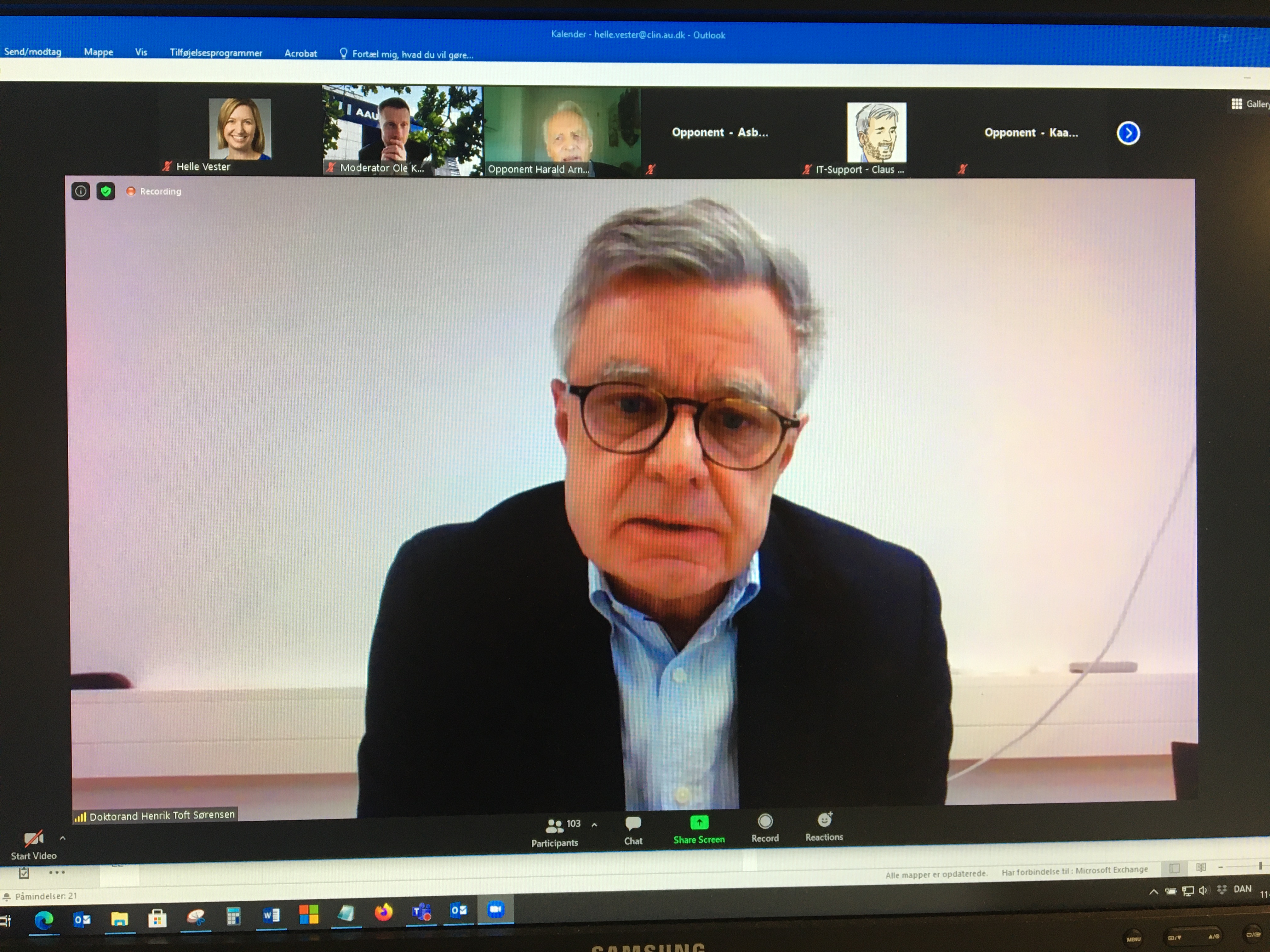Associations among venous thromboembolism, cancer, arterial cardiovascular events, and mortality
New doctoral dissertation (higher doctorate) from DCE investigates the association between venous thromboembolism and 1) cancer, 2) arterial cardiovascular events, and 3) death

Professor Henrik Toft Sørensen has defended his doctoral dissertation, higher doctorate (Doctor of Science) entitled ‘Studies on the Associations among Venous Thromboembolism, Cancer, Arterial Cardiovascular Events, and Mortality’. The dissertation is based on a review of twelve published papers on the association among venous thromboembolism, cancer, arterial cardiovascular events, and mortality.
Venous thromboembolism occurs frequently, has a severe prognosis and is associated with a substantial economic burden in first world countries. An improved understanding of the link between venous thromboembolism, cancer, and arterial cardiovascular events would have an important public health and clinical impact.
The main conclusion of the studies is that deep venous thrombosis and pulmonary embolism may be markers of occult cancer. Venous thromboembolism occurring in cancer patients a year or more after the initial cancer diagnosis may be a marker of new cancer. Cancer patients have a substantially increased risk of venous thromboembolism compared to the general population.
Venous thromboembolism was also found to be associated with increased risk of acute myocardial infarction and stroke up to 20 years after the thromboembotic event. The risk of acute myocardial infarction is transient but the risk persists for stroke. Heart disease may also be a risk factor for pulmonary embolism with concomitant venous thrombosis.
Patients with venous thromboembolism have a high risk of mortality, especially the first year after diagnosis, and retained a higher mortality rate than the general population during ensuing decades.
Read the dissertation here.
